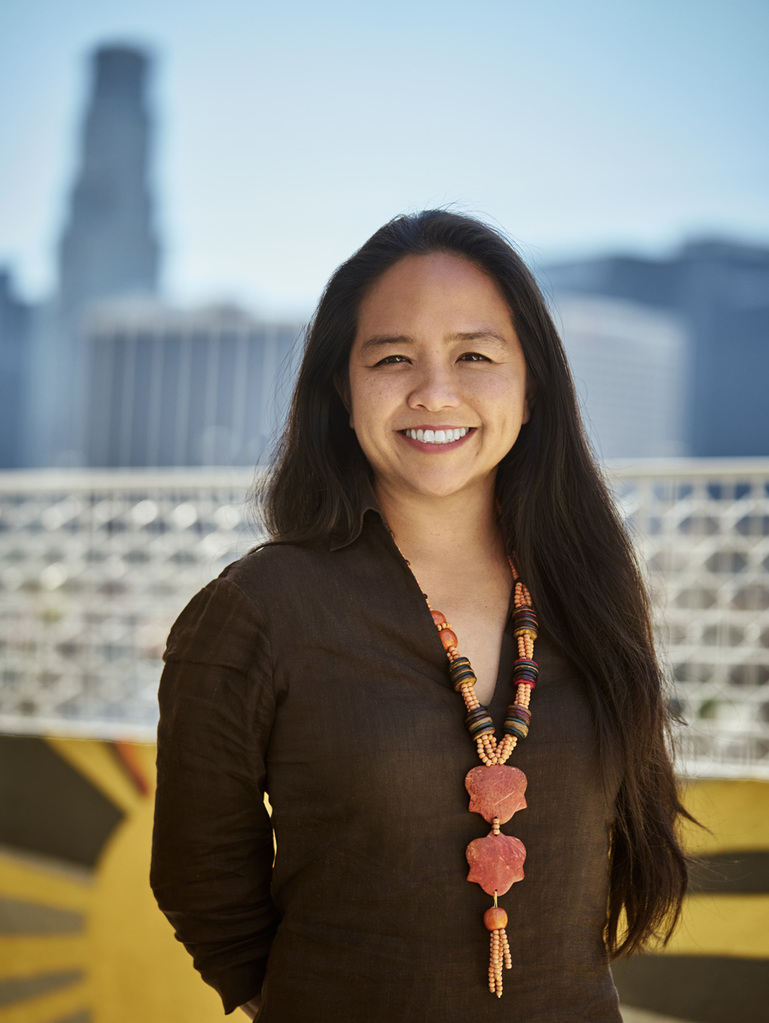Aquilina Soriano-Versoza, who’s dedicated her social justice career to bettering the lives of low-wage domestic workers and immigrants in the Filipino community, was once angry.
She was angry seeing marginalized communities — immigrants, minorities, the poor — being exploited and denied their rights. So she joined the picket lines demanding change, got involved with student activism organizations, got arrested boycotting, and got to know the workers for whom she fought.
“I wasn’t satisfied with just learning about things,” she said. Gradually, she channeled her energy into organizing. “What transformed that was being able to really do things, going into communities and listening to people and being a part of something that’s much bigger.”
Today, she’s the executive director of the Pilipino Workers Center, a post she’s held since 2000. She helped found the non-profit in 1997. The center is a resource and service provider for domestic workers and other low-income Filipinos in ensuring they have access to fair and safe working and living conditions.
Born in Omaha, Nebraska, she grew up removed from the Asian and Filipino communities, even after the family moved to Orange County. Even then, she saw how her father, a Filipino American musician who worked a number of low-wage jobs painting houses, cleaning airplanes and in fast-food restaurants, suffered work instability and racial discrimination by police.
Interestingly, Soriano-Versoza has a past as a Hollywood child star. She played one of Shelley Long’s Girl Scouts in the 1989 cult comedy film “Troop Beverly Hills,” and continued to take on small television roles into her late teens. She would have kept at it, too — if she hadn’t encountered the history of racism and social justice movements after enrolling at UCLA.
After getting involved on and off campus with student activists on issues like labor, police abuse, and environmental justice, she dropped out of school and took a yearlong trip to the Philippines.
In the Philippines, she spent time with disadvantaged populations. She met with students struggling with tuition hikes, rallied with factory workers for better wages and working conditions and went on a medical mission to regions with little infrastructure. When she returned to the U.S., it was clear acting wasn’t the path she’d choose.
By then, she and a group of other students from around Southern California had already begun organizing the Pilipino Workers Center to create a resource for the Filipino community. Specifically, they looked to aid the population of near-invisible Filipinos, most of them immigrants, who work in caregiving and other low-wage jobs.
They focused on building services around the realities of those workers, including food distribution, free tax preparation and immigration consultation.
To date, PWC has won over $600,000 in back wages for domestic workers. It also houses 44 low-income households inside the Larry Itliong Village in Filipinotown, named after the Filipino labor rights activist who was one of the leaders of the 1965 Delano Grape Strike.
In 2013, the center was a part of a movement that helped secure overtime protections for caregivers with the California Domestic Worker Bill of Rights.
“Here in California, all these super small organizations, we dared to try and do some legislation in Sacramento together,” she said. They are now in the process of pushing for an enforcement program for the Bill of Rights. “We made a big impression by really developing the leadership of the workers themselves to be at the forefront. That long-lasting change is the transformation of people, brought together, who become a movement.”
PWC is now expanding its services to additional regions. Meanwhile, Soriano-Versoza has helped found organizations like the National Domestic Workers Alliance, of which she is president of the board of directors, and the California Domestic Workers Coalition.
“I get to dream in such big ways, together, with other people,” she said.
This article is a part of a series of portraits and stories, in celebration of Asian Pacific American Heritage Month, on API women who use their perspectives and voices to speak up and impact their communities. Read more here.







